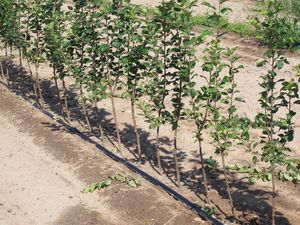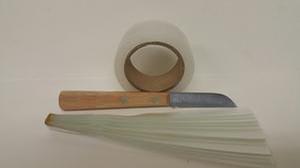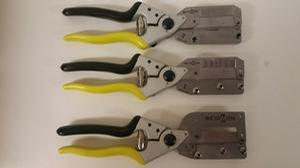
Click the following links for:
Pollination Charts Maturity Charts Chilling Hour Charts Rootstock Charts Hardiness Zone LookupGreat Companions for Malus rootstock 'EMLA 111 clonal rootstock'
« Previous Tree
|
Next Tree »
![]() Print this page
Print this page
Malling 111 Semi-Standard Apple Rootstock
Malus rootstock 'EMLA 111 clonal rootstock'
- Summary
- Hardiness Zone & More
EMLA 111 [75-85%] --- This virus-free clone of Malling 111 produces a tree approx. 75-85% of standard depending on soil conditions. Many consider it a "standard" size tree. Well anchored and self supporting. Under wetter soil conditions, which it tolerates very well, it is somewhat shallow rooted, and will make a larger tree. Under sandier soil conditions, it is less vigorous, but grows well. This is a good rootstock for growers wanting larger semi-dwarf orchards or for sites with replant problems which are limiting tree vigor. Not highly used by a lot of commercial orchardists because of its almost standard size tree. Good availability of many varieties on EMLA 111, especially low vigor varieties.
The Malling rootstock series often go by slightly different names depending on whether or not they are virus-free selections or not. However, if the word Malling is used in the name, you can be sure that they originated at the East Malling Research Station in England, where researchers developed most of the popular apple rootstocks being used by apple growers today. They still are developing new rootstocks as the commercial industry changes and develops new requirements.
Apples are probably the easiest trees to propagate. Grandpa recommends "chip" budding, which is easy to learn and highly successful. Since we cannot ship these early enough in the season, we do not recommend "bench grafting". You usually can start chip budding when your scionwood is mature and buds are developed and readily and easily cut and removed from your scion stick. Usually by August in most areas.
- Zone
- 4-8
- Categories
- Rootstock for Backyard Nurserymen,
- Tags


